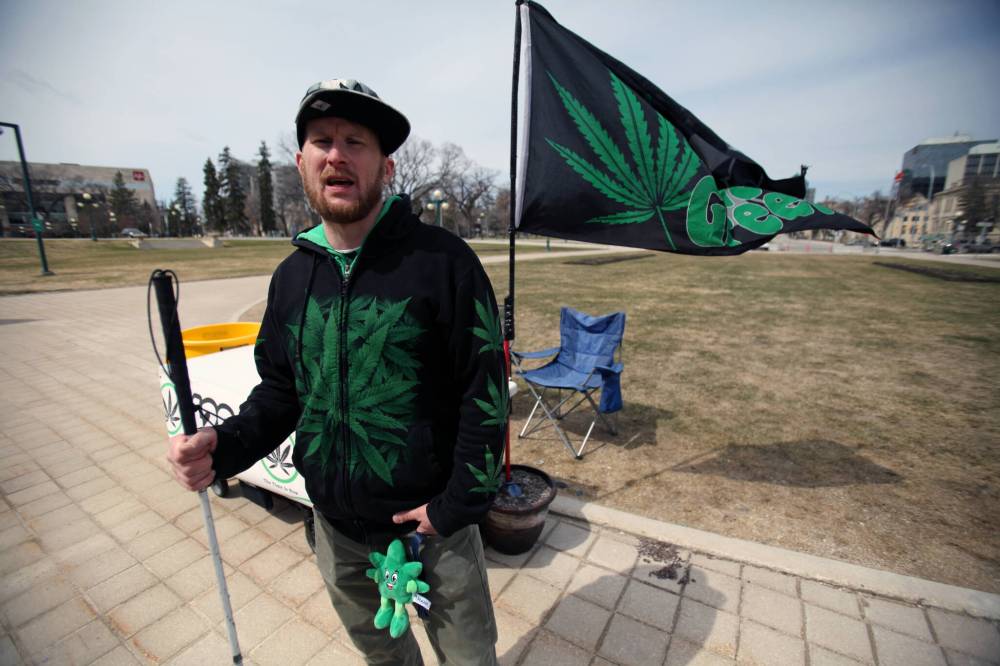Two years after a ban on some medical marijuana production in or near Winnipeg homes, it’s not completely clear how the licensing program affected hotly debated “medical grow-ops.”
In 2022, city council approved bylaw changes to target such sites, after residents complained houses containing hundreds of cannabis plants were polluting air and reducing quality of life in their neighbourhoods.
Coun. Ross Eadie was one of several councillors to demand action on the issue, after he heard multiple complaints about the intense odours.

The Mynarski councillor said the complaints to his office have stopped since the zoning and licensing changes were put in place.
“Nobody’s said there’s an overwhelming stink next to them…. Once the bylaw was passed, it definitely started getting better,” said Eadie.
While he suspects some larger-scale producers simply moved outside city limits, the councillor said it’s not completely clear how many remain.
The restrictions applied to people designated by Health Canada to grow medical cannabis to cover another person’s prescription. Zoning bylaws changed to allow that type of growth only within “wholly enclosed” buildings, at least 91.5 metres (300 feet) from the property line of any homes, parks or schools (including elementary, middle and high schools).
The “designated cannabis production facilities” were also limited to manufacturing zones and banned from downtown, while the city also required those running them to get licences.
The rules don’t affect individuals growing cannabis for personal medical use.
However, the city notes no one actually applied for a licence.
“In addition, no 311 inquiries were received during this time related to this use,” writes James Veitch, manager of urban planning and design, in a report.
Longtime cannabis advocate Steven Stairs said the lack of interest in the program is evidence the city should get rid of it.
“Just the fact that they had zero applications is a telltale sign. The fact that 311 hasn’t had a single call about this application process, I think that’s a failure,” said Stairs. “In any other bylaw, if the city got zero applications for that, they’d (conclude) this is a failed program.”
He said some prescription cannabis users now have less access to medicine, however, since some designated cannabis growers quit the activity to avoid the new rules.
He suspects others are now doing so in a more secretive fashion.
“It just made these people move and just be more secure about it…. (And) there’s still lots of (black market) weed out there, for sure, and this bylaw hasn’t stopped it at all,” said Stairs.
Health Canada’s public portal indicated there were once “upwards of 2,000” designated growers registered in Manitoba, the city report notes. However, that number dropped to about 20 by October 2022, it states.
The report says the agency is not able to explain that change.
“The Public Service notes that Health Canada data indicates a steady decline nationwide in medical cannabis producers. This may be reflective of the increasing affordability and access to medical cannabis than prior to federal legalization of recreational cannabis,” writes Veitch.

Due to privacy legislation, the city hasn’t been able to identify the names and locations of designated growers, he notes.
The report doesn’t call for changes to the city rules.
Coun. Sherri Rollins, chairwoman of property and development, said it makes sense to keep the program as is right now, as federal trends and provincial policies continue to affect cannabis use. That includes upcoming provincial consultations on a change that would let Manitobans aged 19 and older to grow up to four cannabis plants per home, said Rollins (Fort Rouge-East Fort Garry.)
“Taken together with the assumption that there’s an increase in affordability and access to medical cannabis, there’s been a decline in medical cannabis producers, as well as engagement the Manitoba government is doing…. That’s enough reason to tell the city in a report to watch, learn and not make any particular moves until Manitoba is finished consulting,” said Rollins.
In an email, city spokesman Kalen Qually said it’s tough to draw conclusions about the effects of the city rules.
“It isn’t clear if the regulatory program has reduced the number of cannabis production facilities,” wrote Qually.
joyanne.pursaga@freepress.mb.ca
X: @joyanne_pursaga

Joyanne Pursaga
Reporter
Joyanne is city hall reporter for the Winnipeg Free Press. A reporter since 2004, she began covering politics exclusively in 2012, writing on city hall and the Manitoba Legislature for the Winnipeg Sun before joining the Free Press in early 2020. Read more about Joyanne.
Every piece of reporting Joyanne produces is reviewed by an editing team before it is posted online or published in print — part of the Free Press‘s tradition, since 1872, of producing reliable independent journalism. Read more about Free Press’s history and mandate, and learn how our newsroom operates.
Our newsroom depends on a growing audience of readers to power our journalism. If you are not a paid reader, please consider becoming a subscriber.
Our newsroom depends on its audience of readers to power our journalism. Thank you for your support.